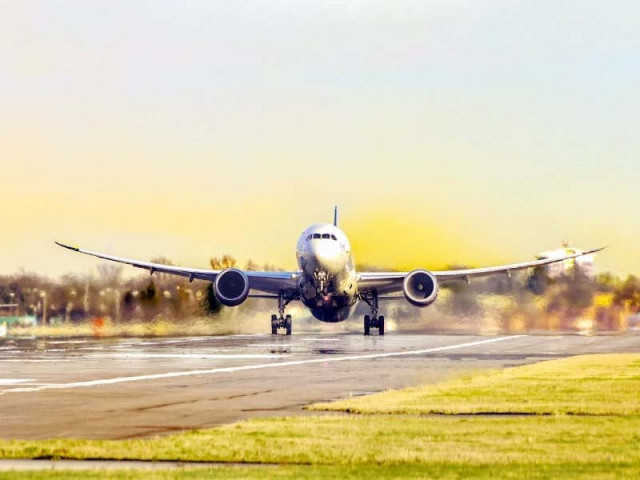CAA proposes to soften aviation policy
Shares draft of new policy with stakeholders; it will be finalised on March 4

Shares draft of new policy with stakeholders; it will be finalised on March 4.
PHOTO: FILE
In late November 2018, the CAA established a committee to help prepare a draft to change the open sky policy into a fair and open sky policy.
“In pursuance of directives of Prime Minister Imran Khan, a draft of the New Aviation Policy (NAP) 2019 has been prepared,” read a statement issued by the CAA. “This draft policy is a joint effort of the Aviation Division, CAA and all relevant stakeholders.”
The CAA has shared the draft with the stakeholders, which will be discussed and finalised on March 4. Once agreed, it will be presented to the federal cabinet for approval.
“The new policy is aimed at incentivising airline operators, pilots, cabin crew and passengers within Pakistan,” said a CAA spokesperson.
Airspace partially opened for commercial flights
The entity has recommended rationalisation of all passenger-related and aeronautical charges for domestic operations. Additionally, the CAA charges, related to the aviation sector, for the provision of land and spaces have also been rationalised substantially. The authority will offer fee concession, improve services at the same cost and soften conditions for availing licences and services.
In a bid to facilitate airlines, the validity period of licences issued to them and general aviation operators is being increased from one year to two years. In late December 2018, Air Sial’s higher management met Prime Minister Imran Khan and requested him to extend the due date for starting its operations.
The current aviation policy grants new entrants only a year for beginning operations, which is insufficient for meeting all the formalities. Therefore, new players had been reluctant to enter the industry.
Although five airlines - Afeef Zara Airways, Askari Air, Air Sial, Go Green and Liberty Air - applied for licences before the end of 2017, however, none of them have displayed any signs of entering the market, except for Air Sial.
If an airline fails to start operations within a year after the issuance of licence, it is liable to justify its act for the process of renewal, which itself is a nuisance for an investor. The regulator will also propose enhancement of the validity period of personnel licence and cabin crew certificate up to five years with a rationalised fee.
Currently, most of the licences expire in a year or two.
After reviewing the aircraft manufacturing industry and maintenance repair organisations (MROs), the authority has suggested incentives for them to promote developments related to these fields.
The CAA is going to introduce the Tourism Promotion and Regional Integration (TPRI) licence as a separate category.
This move is aimed at promoting tourism and facilitating connectivity of socio-economic destinations - less viable routes such as Turbat, Panjgur, Khuzdar, Dalbandin, Zhob, Rawalakot, Skardu, Chitral, Gilgit, Bannu, Parachinar and Muzaffarabad.
“TPRI licence is being introduced on incentivised and business-friendly terms,” revealed the spokesperson.
The CAA will redefine the corporate social responsibility (CSR) component, such as solid waste management, provision of water, liquid waste management, plantations, etc for both airports and airlines. “These facilities will help attract more passengers,” he added.
The matter of aeronautical charges on international flights was also being reviewed and would be announced after clearance by the competent forum, he said.
Ground schooling and flying club curricula were also being reviewed to produce more professional and knowledge-based pilots.
Published in The Express Tribune, March 3rd, 2019.
Like Business on Facebook, follow @TribuneBiz on Twitter to stay informed and join in the conversation.



















COMMENTS
Comments are moderated and generally will be posted if they are on-topic and not abusive.
For more information, please see our Comments FAQ